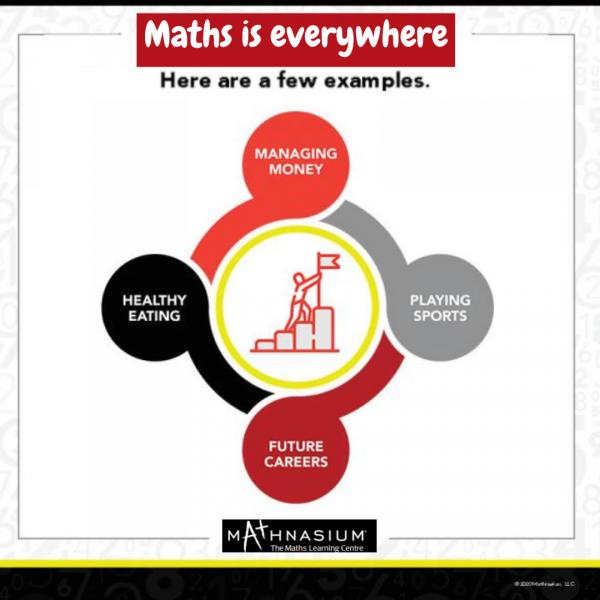Make Summer Maths Part Of Your Summer Fun
Make Mathnasium part of your summer plans!

Maths is a universal tool that helps our children thrive. From the earliest years, when parents show children the importance of sharing (dividing) with others, they are also teaching them maths. As they get older, though, children often ask, “When will I use maths in real life?” The answer to them should be, “Every day!” Children need to develop a strong maths foundation early to help them through school, future careers, and throughout every aspect of their lives.
Let’s start with school. A creative and highly interconnected discipline, schools teach children to become fluent in the fundamentals of mathematics, to reason mathematically and to solve problems by applying their mathematics to a variety of routine and non-routine problems. Children must study maths each year until year 11, following the curriculum set out in Key Stages 1 through to 4 and culminating in a GCSE in maths at the end of Year 11. It's compuslory for all students to achieve a pass (grade 4 or above) and those who don't, will need to resit until they achieve a pass or turn 18.
The need for maths continues once they move into further education. University courses will require a pass in maths at GCSE level and some will stipulate a specific grade in order to apply, so it’s essential to understand the significance of maths right from the start of Key Stage 1.
A focus on maths in secondary school and beyond gives students a wide range of career options to consider. So many careers incorporate maths in some way: doctor, marine biologist, engineer, ship’s captain, even artist — the list is never-ending! According to the Georgetown University Public Policy Institute, most occupations require mathematical knowledge to be successful. Maths is also growing in importance in the competitive job market.
School and careers aside, so many young people — and their parents — don’t understand how they already use maths all the time. Maths is critical to success in problem-solving and critical thinking, and it's an intrinsic part of language, spatial, directional and memory skills. Here are a few more examples.
Managing Money: We count pounds and pence. Algebra helps us plan our finances. The concepts of principal and interest are key to buying a car or a house. Earning, saving, retirement planning — it’s all maths.
Playing Sports: Maths helps us keep track of sports scores and statistics. Geometry and trigonometry help us find the best way to hit a baseball, make a basket or jump over hurdles.
Healthy Eating: We count calories and grammes of carbs or fats. We take nutritional supplements that add up to 100% of our recommended daily requirements. We use proportions and ratios when we double or halve a recipe or an ingredient.
Enjoying Music: Music is fundamentally mathematical. Our brains appreciate pitch, chords, balance and so on through an unconscious mathematical understanding. As philosopher and mathematician Gottfried Leibniz said, “Music is the pleasure the human mind experiences from counting without being aware that it is counting.”
Creating/Enjoying Art: From Leonardo Da Vinci to gorgeous tile mosaics in medieval Islamic buildings, art and maths have always been inextricably intertwined. English mathematician G. H. Hardy likened painters and poets to mathematicians because they are all pattern-seekers. (Mathematics is sometimes called the “science of patterns.”)
Parents, you play an important role in helping children to recognise and practice maths in their daily lives. It starts by recognising that maths is everywhere, all the time, and that practising with your child is just as important as reading with them. Rather than avoid maths, children who learn to embrace maths will have a future of unlimited possibility. Talk to your local Mathnasium Learning Centre anytime about the many ways you can explore maths together with your child.


Mathnasium meets your child where they are and helps them with the customised program they need, for any level of mathematics.
